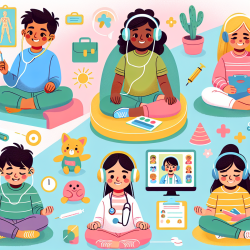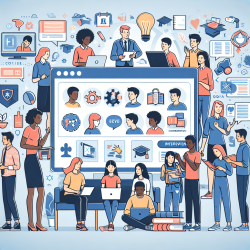In the ever-evolving landscape of healthcare, the ability to collaborate effectively across disciplines is paramount. Interprofessional education (IPE) is designed to prepare students for this reality by fostering collaborative skills early in their training. A recent study titled Readiness for Interprofessional Learning Among Health Science Students: A Cross-Sectional Q-Methodology and Likert-Based Study sheds light on how students perceive and are prepared for IPE. This research provides valuable insights that practitioners can leverage to enhance their skills and improve patient care.
The Study: A Dual-Method Approach
The study employed a novel approach by combining the Readiness for Interprofessional Learning Scale (RIPLS) with Q-methodology. This mixed-methods design allowed researchers to assess both the quantitative readiness of students for IPE and the qualitative nuances of their perceptions.
The findings revealed that graduate students exhibited higher readiness scores compared to undergraduates, indicating a greater preparedness for interprofessional collaboration. Additionally, the Q-methodology uncovered distinct priorities among students based on their program specialization:
- Undergraduate General Programs: Focused on the relevance and benefits of IPE to the clinical team.
- Graduate Programs: Prioritized patient-centered care as a primary outcome of IPE.
- Undergraduate Health Professional Programs: Emphasized personal development and the role of IPE in enhancing individual competencies.
Implementing Research Findings in Practice
Practitioners can draw several actionable insights from this study:
- Tailor Educational Interventions: Recognize that different student groups have varying needs and tailor IPE initiatives accordingly. For instance, undergraduate students may benefit from exercises that highlight teamwork's importance, while graduate students could engage in patient-centered case studies.
- Foster Reflective Practices: Encourage students to reflect on their roles within a team and how they contribute to patient outcomes. Reflection can deepen understanding and appreciation for interprofessional collaboration.
- Create Real-World Experiences: Simulated or real-world collaborative experiences can enhance learning by providing practical applications of IPE principles.
The Path Forward: Encouraging Further Research
This study underscores the importance of understanding student readiness for IPE and tailoring educational strategies to meet diverse needs. Practitioners are encouraged to delve deeper into interprofessional learning research to continually refine their approaches and contribute to the broader body of knowledge.
To read the original research paper, please follow this link: Readiness for interprofessional learning among health science students: a cross-sectional Q-methodology and likert-based study.










